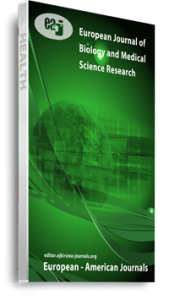In vivo antiplasmodial potency of aqueous leaf extract of phallanthus niruri used in malaria naturopathy, a global public health scourge was evaluated in unsexed 100 4-week old, 5 groups of 20 swiss albino mice each weighing 18-22g passaged with rodent plasmodium berghei NK-65 except Sham. Control/Sham received distilled water. Other 3 groups received 200, 400; 800mg/kg of extract respectively and focally/histologically sampled for 7 consecutive days (d). After 7d, Control exhibited high density load of parasitemia, marked lethargy, white eyelids and extreme hemodilution compared to treated groups. % residual parasitic density with time (d) were 35 + 4% (200mg/kg), 13 + 1% (400mg/kg), 10 + 1% (800mg/kg) compared to 65 + 7% (Control) with Ct½ 1.4 < 2.3 < 4.8 < 7d : 800 < 400 < 200mmkg < Control (p < 0.05). No adverse renal or hepatic effects. These results strongly demonstrate a potent safe in vivo antiplasmodial activity of P. niruri.
Keywords: antiplasmodial activity, aqueous leaf extract, phyllanthus niruri, swiss albino mice.

